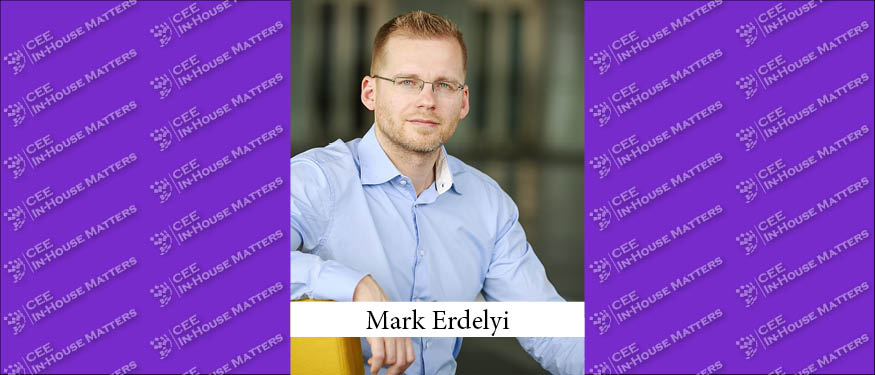Mark Erdelyi, Legal Director of Telenor Hungary, reports on the wide range of hurdles he and his team have had to overcome since the COVID-19 outbreak.
While the outbreak has cost many people their jobs or unable to do their work, in-house lawyers faced a different experience, as their workloads increased significantly and a number of new challenges emerged.
The Early Days
The first thing that came up around the end of February when COVID-19 started spreading across the world – but before it really hit in Hungary – were discussions about setting up adequate measures for employees’ safety. Our 12-person legal team had to assess from an employer’s perspective the tools and measures we could use to protect our colleagues.
Working together with the security team, the HR team started to set up a reporting system for foreign travels, but we had a large number of difficult internal discussions about the legality of asking our employees about their private travels or whether someone they lived with had traveled abroad. The end conclusion was that it was ok to ask such things, although I, personally, was not fully convinced about it at that time.
As things progressed, home-office quickly became the go-to solution. Employees returning from travels abroad to risky areas had already been asked to work initially from home, but home-office started to spread even more than before as it became a health and safety consideration.
An emergency team was set up at Telenor Hungary and things started rolling in terms of procurement of masks, sanitary products, etc.
And then, suddenly, on March 16, we closed our headquarters, and everybody moved to home-office.
Going Digital
Work went digital, meetings were held over the Internet, and the number of e-mails skyrocketed. Then we all suddenly realized that we could sign documents electronically and make contracts via e-mail, although of course all these conclusions required legal analysis before we were able to switch from the previous processes to digital solutions to ensure proper execution.
In this we had many funny outcomes. One instance was when we agreed on e-signing with a law firm (which we believed had had some previous experience with e-signatures). We e-signed the contract, and then the partner proceeded to print our e-contract and signed it physically before sending back the scanned version.
The Flood of Work
Our legal team constantly was bombarded with questions: Is it legal to ask employees to wear masks? What about asking our customers to put on masks when they enter our shops? For employees, the answer was quite easy – “Yes!” – but the answer for the shops proved to be more difficult, although eventually Telenor became among the first to ask its customers to cover their faces. Most people welcomed it, but we received complaints as well.
A lot of things were then “solved” when the state of emergency was introduced in Hungary, and by the daily new law dumps that came with it. For instance, by the time we started to wrap our heads around the requirements related to the length of time we’d allow our employees to work in a home-office setting, the law changed and allowed it for extended periods. The same thing happened in terms of the masks issues I mentioned earlier.
When the state of emergency came into effect, we had to dedicate one lawyer to read all the new laws as soon as possible, even needing them to burn the midnight oil, because the changes were pouring in at such a fast pace. Our main webpage became the official gazette’s site and we had many morning discussions about how to interpret the new laws which had come in overnight. For instance, I can highlight the laws which closed all shops and contained an explicit list of shops which could stay open. At first sight, it was not obvious that telco shops were among those which could remain open, but our interpretation followed the intent of the lawmaker and we managed to keep the stores open – which was really well-received by the public, especially at a time when they needed Internet, extra phones, or a gadget to keep in touch with their loved ones or do their work remotely.
Of course, many people did not dare to visit our shops. Thus, we had to start a project to move our retail functions online, which included electronic forms being created in order to handle simple requests from customers. For example, suspending telephone service was made possible by simply filling out a form, taking a picture of it, and uploading it.
It also happened, often, that customers would refer to COVID-19 as a force majeure case that would justify them not fulfilling an obligation – usually payment. This was another lengthy internal-debate-generator and we decided that the virus was not a force majeure in itself, but that it, considered together with relevant individual characteristics, could be considered as such. The virus situation had different effects on different entities. Of course for a restaurant, it was an unforeseen and unavoidable event and a highly damaging one to their business. But that was not the case for everyone – there were companies that benefited from it and/or used our services even more. We aimed to handle our business customers in a fair way and worked towards reaching mutually beneficial agreements. These agreements were also created by the legal team.
One of my favorite legal challenges was to interpret the new rules on strategic investments. The best way to describe just how complicated these rules were -- and how complicated they remained with the new act – is to quote one e-mail from an external lawyer that I saved in my mailbox. When I asked confirmation for a certain interpretation, his answer was simply: “Well that is possible, however, due to lack of practice, something else could be the case too.”
On the subject of external lawyers, I was bombarded, especially in those early days, with many external law firms’ newsletters about the “Hot Topics of the COVID-19 Situation.” I was surprised that some of these were quite superficial and seemed to be more interested in the marketing effect – something that I found neither professional nor ethical, but it might be a result of the rush to get them out. Fortunately, as we progressed deeper into the COVID-19 era, the quality of these newsletters got better and better.
Overall, the first month of the COVID-19 outbreak was a shock for my team. This was exacerbated by the fact that, besides pandemic- and business-as-usual matters, we had a few large projects on our plates, like the creation of CETIN as a separate company by means of a de-merger, a 5G auction, and others.
When it comes to my team, we started each day with an online legal meeting at least to see each other. It really felt like a war room, where we agreed on our daily tasks. Since our employees’ satisfaction is measured weekly by our HR function, I was not surprised to see that in the “workload” part my team was not among the happiest in the company. That said, I feel, in general, that most of them appreciated that we could set up proper collaboration online and were able to discuss and get advice from each other. I found myself spending more time dealing with my colleagues than before the COVID-19 outbreak.
The Dust Settles?
I’d say that, by May, many things were already settled or were starting to settle down, and the workload started to normalize – I could even note that my team’s job satisfaction started to rise according to the HR surveys. Now summer is here, meaning we have some time to relax on holidays and, fingers crossed, we’ll soon get back to a “normal” state, while taking the positive lessons drawn from this experience with us.


